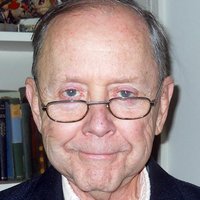America's Liberal Democracy Under the Microscope
GEORGE WEIGEL explains in this collection of essays why the United States and other liberal democracies need the Church: to be decent and humane societies, grounded in moral principle and thus able to avoid the extremes of individualism and coerced conformity. The Church is willing. But are the United States and other liberal democracies? That is not so clear.
Americans are well into a dreary presidential campaign pitting a value-free incumbent against a headstrong septuagenarian who believes morality should stay out of politics. Propelled by ego, a populist libertarian billionaire is preparing to join the race. The only significant religious force visible on the scene is the Christian Coalition. Catholics? In American politics today, Catholic voters divide up just like everybody else. Four years ago, they helped elect the most pro-abortion President in history. Apparently they are preparing to help keep him there this year.
George Weigel has gone to work on a biography of Pope John Paul II, with the approval of the Pope. According to Weigel, one reason Americans should find John Paul interesting is that he is interested in them: That is, he views the American experiment in liberal democracy as a “laboratory” for the future of much of the rest of the world. John Paul is right. How are things going in the lab?
In the term that begins in October, the Supreme Court is expected to review two lower federal appeals courts rulings that signed off on assisted suicide. Roe v. Wade and Planned Parenthood v. Casey, giving the United States the most permissive policy on abortion of any country outside China, do not inspire confidence regarding what the high court might say. Gay “marriage” lurks just over the horizon. The list is indefinitely expandable. By no means is it certain this experiment in liberal democracy will turn out well.
Weigel has two heroes, Pope John Paul and Jesuit Father John Courtney Murray, the theologian of Church and state. Father Murray, the most eloquent and sophisticated of the Americanists, made his reputation in the 50s by arguing the compatibility of Catholicism and the American system. But he made it clear that if the consensus on natural law collapsed, America would be in big trouble.
Throughout his U.S. trip last October, John Paul sounded a drumbeat on that theme. “Freedom is ordered to the truth…. Detached from the truth about the human person, freedom deteriorates into license in the lives of individuals, and, in political life, it becomes the caprice of the most powerful and the arrogance of power,” he said.
Weigel suggests that Americans are “rediscovering” the need for religion and moral values. Some are. But how widely is that happening? Do not the presidential campaign, the recent record of the Supreme Court, and much else, point in other, alarming directions?
In one of the best of these intelligent and wellwritten essays, Weigel traces the evolution of the Church's view of liberal democracy beginning with Gregory XVI and Pius IX in the 19th century to John Paul II today. There has been an enormous change—a shift from suspicion and hostility, to today's recognition that, considering the alternatives, liberal democracy is best. But need that always be the case? That is not John Paul's view. Time and again he warns that the cultural dominance of ethical relativism leads to democratic totalitarianism. That is the path we are traveling now.
Weigel understands all that, and writes about it well. But he does not address here the argument between himself and his ideological allies (people like Father Richard John Neuhaus and Michael Novak), who consider liberal democracy redeemable, and critics like David Schindler, who hold that liberal democracy's roots in Enlightenment principles effectively place it beyond redemption. On that debate, it seems, the jury is still out.
Russell Shaw is based in Washington, D.C.
- Keywords:
- September 1, 1996













